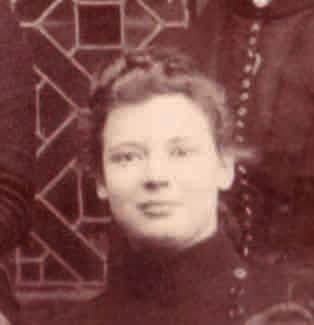
2 minute read
A story from Queen’s archive
Stories from the Queen’s College Archive
Advertisement
Dr Octavia Lewin: an Old Queen pioneer in ear, nose and throat treatment
Octavia Margaret Sophia Lewin by Olive Edis, platinum print, 1920s © National Portrait Gallery, London

Photograph of Octavia Lewin as a first-year student at Girton College in 1888 Octavia Lewin was born in Hertfordshire in 1869. She was educated privately by a German governess and prepared for university at Queen’s, taking her degree at Girton College where she read Natural Sciences. She was Arnott Scholar at Queen’s and held the Goldsmith Scholarship at Girton.
Octavia qualified in Medicine at the London School of Medicine for Women (founded by Sophia Jex-Blake, another Old Queen), the Royal Free Hospital and the Rotunda Hospital in Dublin and became the assistant physician at the Royal London Homeopathic Hospital. She specialised in diseases of the ear, nose and throat.
World War I was one of the first opportunities for female doctors to gain a wider acceptance and to demonstrate that they could work in the medical profession at a higher level than nursing. Octavia served as assistant surgeon to the English Military Hospital at Dieppe and as chief physician at the French Military Hospital at Charenton.
Later in the war, she worked at “Endell Street” in London, the only British army hospital to be staffed and run entirely by women for the duration of the war. In an unnerving parallel to current events, the team at Endell Street that had saved thousands during the war had no effective weapon against the “Spanish” ‘flu that killed many of its younger staff, as well as patients. Perhaps this explains Octavia’s lifelong passion for hygiene education.
After the military hospitals closed in 1919, the UK’s medical schools returned to barring female students, and female doctors were sidelined once again. Octavia – who sounds from her prolific letters to the newspapers like someone not easy to sideline – joined the Central London Throat, Nose and Ear Hospital. She became an advocate of breathing exercises for children and visited schools as a rhinologist for London County Council.
She was also a campaigner for female suffrage. The 1911 census was conducted at the time the Votes for Women campaign was growing vigorously. Suffrage organisations decided to boycott the census in protest at women’s exclusion from the franchise. The Women’s Tax Resistance League achieved considerable success in encouraging its small but determined membership to rebel. Octavia wrote on her census form: “I absolutely refuse to give any information”, before listing her impressive academic credentials.
Octavia was in practice at 25 Wimpole Street, London in 1911, and at 8 Manchester Square, London in 1948 (the year Girton was granted full status by Cambridge University). She died in 1955.
This book, published earlier this year, mentions Olivia only in passing, however, it gives a moving insight into the incredible achievements of this generation of medical women: Wendy Moore, ‘Endell Street: The Trailblazing Women who Ran World War One’s Most Remarkable Military Hospital’ (Atlantic Books, 2020)

